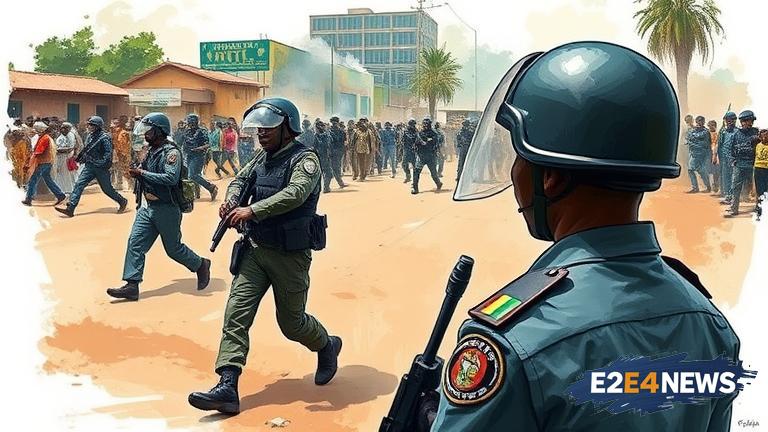The International Criminal Court (ICC) has ordered an investigation into the Malawi police’s handling of the June 26 protests, which were marred by violence and allegations of police brutality. The protests, which were organized by the Civil Society Organizations (CSOs), were aimed at expressing dissatisfaction with the government’s handling of various issues, including corruption and economic mismanagement. However, the protests turned violent, with reports of looting, vandalism, and clashes between protesters and police. The Malawi police have been accused of using excessive force to quell the protests, resulting in injuries and arrests. The ICC’s order comes after a petition was filed by human rights groups, alleging that the police’s actions constituted a breach of international human rights law. The Malawi police chief, Rodney Yolamu, has been ordered to cooperate with the investigation and provide a detailed report on the police’s handling of the protests. The investigation is expected to shed light on the circumstances surrounding the protests and the police’s response. The Malawi government has been criticized for its handling of the protests, with many accusing it of attempting to suppress dissenting voices. The CSOs have vowed to continue protesting until their demands are met, while the government has warned against further unrest. The situation remains tense, with many fearing that the situation could escalate into further violence. The ICC’s intervention has been welcomed by human rights groups, who see it as a step towards ensuring accountability and justice for victims of police brutality. The investigation is also expected to examine the role of other security agencies, including the army, which was deployed to support the police during the protests. The Malawi police have been accused of being incompetent and biased, with many alleging that they are more interested in protecting the government’s interests than in serving the people. The ICC’s order has sent a strong message to the Malawi government and the police that they will be held accountable for their actions. The investigation is expected to take several months, during which time the ICC will gather evidence and interview witnesses. The Malawi government has been given a deadline to respond to the ICC’s order, and failure to comply could result in further action. The situation in Malawi remains volatile, with many fearing that the situation could deteriorate further if the government does not address the underlying issues. The ICC’s intervention has provided a glimmer of hope for those seeking justice and accountability, and it remains to be seen how the situation will unfold. The Malawi police chief, Rodney Yolamu, has been under pressure to resign, with many accusing him of being responsible for the police’s heavy-handed response to the protests. The ICC’s order has added to the pressure, and it remains to be seen how he will respond. The investigation is expected to be thorough and impartial, and it will provide a detailed account of the events surrounding the protests. The Malawi government has been warned that it must take steps to address the underlying issues that led to the protests, including corruption and economic mismanagement. The ICC’s intervention has sent a strong message that the international community will not tolerate human rights abuses, and that those responsible will be held accountable.
